Question
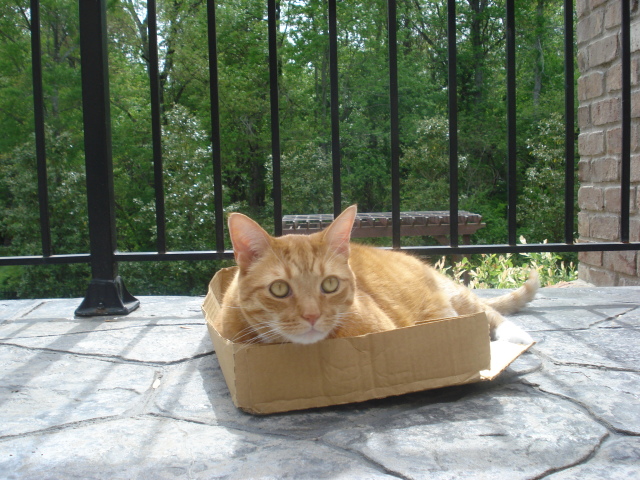 My Edward
My Edward
First of all I want to thank you for even reading this. I took my 10 yr old male orange tabby (Edward) in for an annual exam and vaccinations. I felt like he seemed a little listless, excessive water drinking, gobbling his food and peeing outside his litter box and wanted to ask the vet about it. I changed his diet from free feeding dry cat food (meaning I kept his bowl full always) to switching to canned friskies because he weighed 26lbs! I didnt want him to become diabetic so I switched him to one can a day. (slowly of course) He now weighs 13lbs(took him about 6 mos) and I feel he is too skinny now. Anyway after taking him to the vet I asked them to examine him first before giving him his vaccines. They gave him a clear bill of health saying everything is good with him (except tarter on his teeth)so I gave the go ahead with the vaccines.
That was a week ago and now he has lost his meow, hardly eats, way more lethargic,he feels slightly damp, and found him sitting in his own urine. He is doing all of the same things my other kitty who died is doing before she died! He wasnt doing this before I took him to the vet. I am taking him first thing tomorrow but I dont feel confident with their care now. He has an appointment to have his teeth cleaned (they will put him under for that)in a few days and I am thinking of canceling that because I feel its too risky considering he is not well. Please help me, I dont know how to help my little boy.
AnswerHi Tina,
Definitely cancel the dental procedure for now. I agree that Edward isn't in good enough shape to undergo anesthesia unless it's for a lifesaving procedure.
I strongly recommend having some blood work done on Edward. I'm disconcerted about his rapid weight loss. Even though Edward was overweight, he should not have lost half his body weight in six months. Even with a strict diet, for a 300-lb man to lose 150 pounds in six months would be a red flag and almost a certain sign of illness. This is the same type of weight loss your cat has just experienced. When you see excessive water drinking and food gobbling, as well as litter box problems, I think you're right to question whether there is a health problem.
Diabetes can cause excessive thirst and food gobbling. So can kidney disease, in early stages. Hyperthyroidism is another possibility. All of these will also account for the rapid weight loss, and when the diseases progress to severe stages, they will cause nausea that can cause refusal to eat. The conditions can be confirmed or ruled out with simple blood and urine tests.
Something I might also be a little worried about is Fatty Liver Disease, which is caused by too rapid weight loss. Cats don't metabolize fat well, and when the body tries to use its fat stores during weight loss, the fat gets trapped in the liver. This causes liver failure called hepatic lipidosis, or Fatty Liver Disease. Cats become lethargic and lose appetite. End stage liver patients often become too frail to make it to the litter box. Blood tests can detect liver failure. The elevation of liver enzymes, especially one known as SAP (serum alkaline phosphatase), can strongly suggest hepatic lipidosis over the presence of other causes of liver disease. This form of liver failure is sometimes reversable, whereas other types are usually not. The treatment is generally to force feed small amounts of a prescription food until the cat recovers. Hospitalization is often required, because many cats are dehydrated and need anti-nausea medications given intravenously or subcutaneously.
I would suspect that your kitty's vaccinations probably didn't have too much to do with his serious condition, although it's possible he may have picked up something while he was at the vet. There are some viral illnesses, like calici virus, that can cause painful mouth sores, fever and lameness of the legs. Several of my kitties have wet themselves rather than walk to the litter box when they suffered this infection, and most cats with this infection won't eat due to mouth sores. If Edward had ever had any vaccinations, he probably had some protection against these viruses, but the vaccines don't cover every strain. Also, if he was infected with the virus when he was younger, he could've been a carrier all his life, and the virus can reactivate during times of physical or emotional stress, such as may be caused by a vet visit or vaccines. Your vet could check him out to see if he's suffering any symptoms consistent with calici virus. Antibiotics can help prevent secondary infections, and pain relievers can help ease joint and mouth pain. Most of the time, the symptoms pass in about 7-10 days.
Best of luck!
Jessica


 cat disappeared
Question
pusscat at home
My cat came to me at 6 months
cat disappeared
Question
pusscat at home
My cat came to me at 6 months
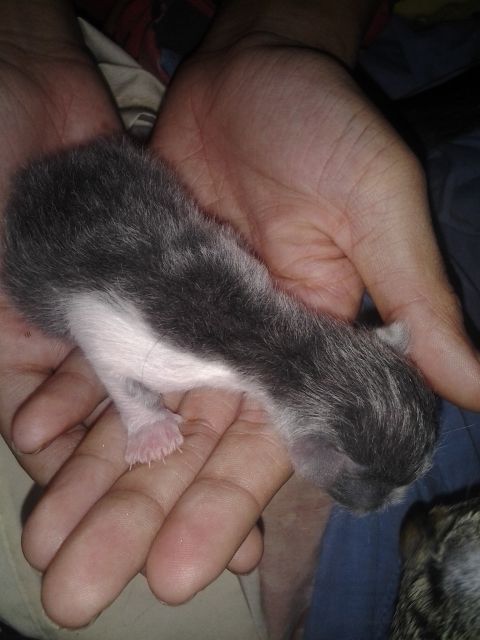 Trouble with my Two female cats.
Question
The kitten Two Cats
Hello, I have
Trouble with my Two female cats.
Question
The kitten Two Cats
Hello, I have
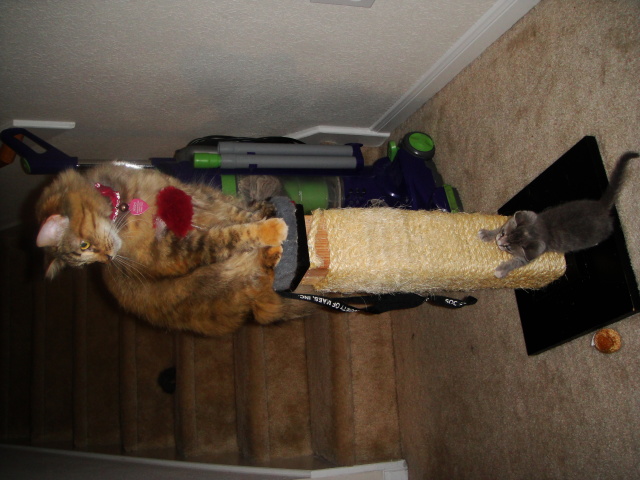 Kitten weaning questions
QuestionI just recently rescued a kitten of about 4 wee
Kitten weaning questions
QuestionI just recently rescued a kitten of about 4 wee
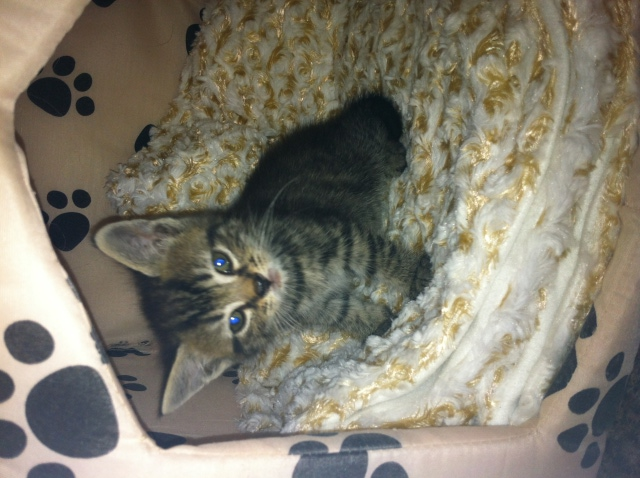 Bengal kitten?
Question
Pic Picture
Hello, I was wonderi
Bengal kitten?
Question
Pic Picture
Hello, I was wonderi
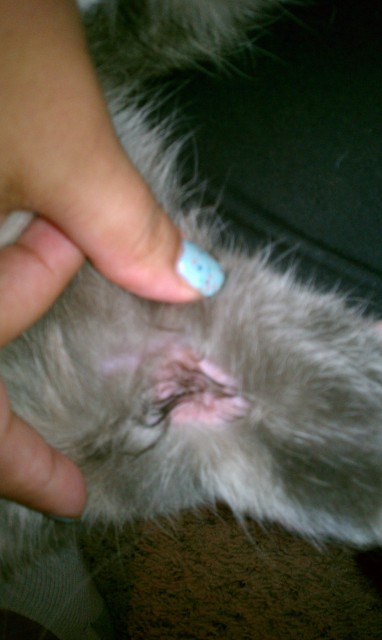 Small bald spot?
Question
Chibi arm
I was playing with my almost
Small bald spot?
Question
Chibi arm
I was playing with my almost